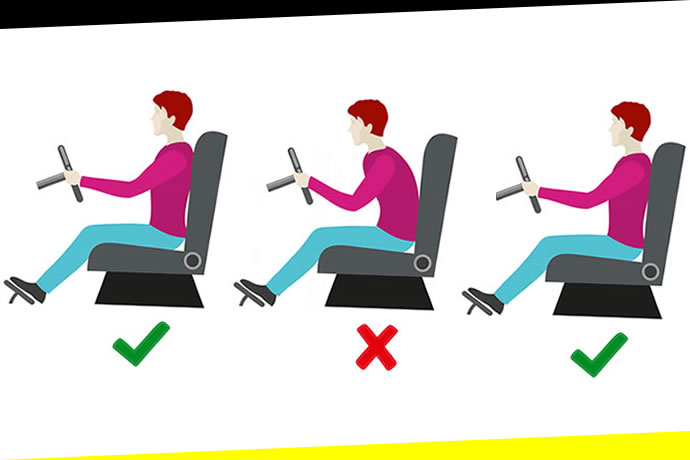
Long summer drives in the sunshine are a great way to blow away the cobwebs, while you enjoy the open road and move precious cargo from one spot to another. Ok, so it's not always precious, but it needs to move safely one way or another. And, while you take extra care of what you're carrying on board, you could be one of the many drivers out there that aren't taking care of themselves. Or at least not as much as they could.
So in light of that we've put together a list demonstrating Five Ways to Make Driving Long Haul Better.
Going bananas
When you’re out and about on the road, it can be difficult to choose the right, healthy snacks that are going to keep your energy levels up throughout your shift. A banana contains potassium to help regulate blood pressure and the carbohydrates will keep your energy levels steady.
Disconnect from your phone
Smartphones, in particular, are linked to increased stress, so once your shift has finished by all means check on your social media, but remember to take some down time away from the screen.
Use Music to improve your mood
Research has shown that some types of music can divert attention from anxiety and pain. Classical music is best known to reduce the effects and feelings of stress, however, if classical music isn’t for you, try listening to an audiobook as it is said to have the same calming effects.
Get out and get exercising
I know it’s not what we always feel like doing after a long shift driving, but it doesn’t have to be anything strenuous, it can be as gentle as a walk around your local park. Any type of exercise will release endorphins that promote positive feelings of happiness and relaxation, allowing the memories of any stressful driving to melt away.
Practice that posture
Hunched up over the steering wheel can promote feelings of frustration and anger, so while you’re at the wheel, use the opportunity to improve your posture by extending your spine and lifting your neck so you are sitting in a correct and comfortable driving position.
When we are stressed, hormones such as cortisol flood our system which produces the more commonly known response of “flight or fight”, inducing a quickened heart rate, heavy breathing and blood vessel constriction. This stress reaction can contribute to both mental and physical illnesses such as migraines, hypertension, depression and anxiety, asthma, insomnia and more.
Stress responses can be combated by using the simple techniques above both during and after driving. Do you have your own methods? Why not share them with on our Facebook page to help benefit your fellow drivers!
Want to find out more about how our permanent recruitment solution can help benefit your business? Visit www.nationalrecruitmentline.com or email [email protected]
17 April 2018